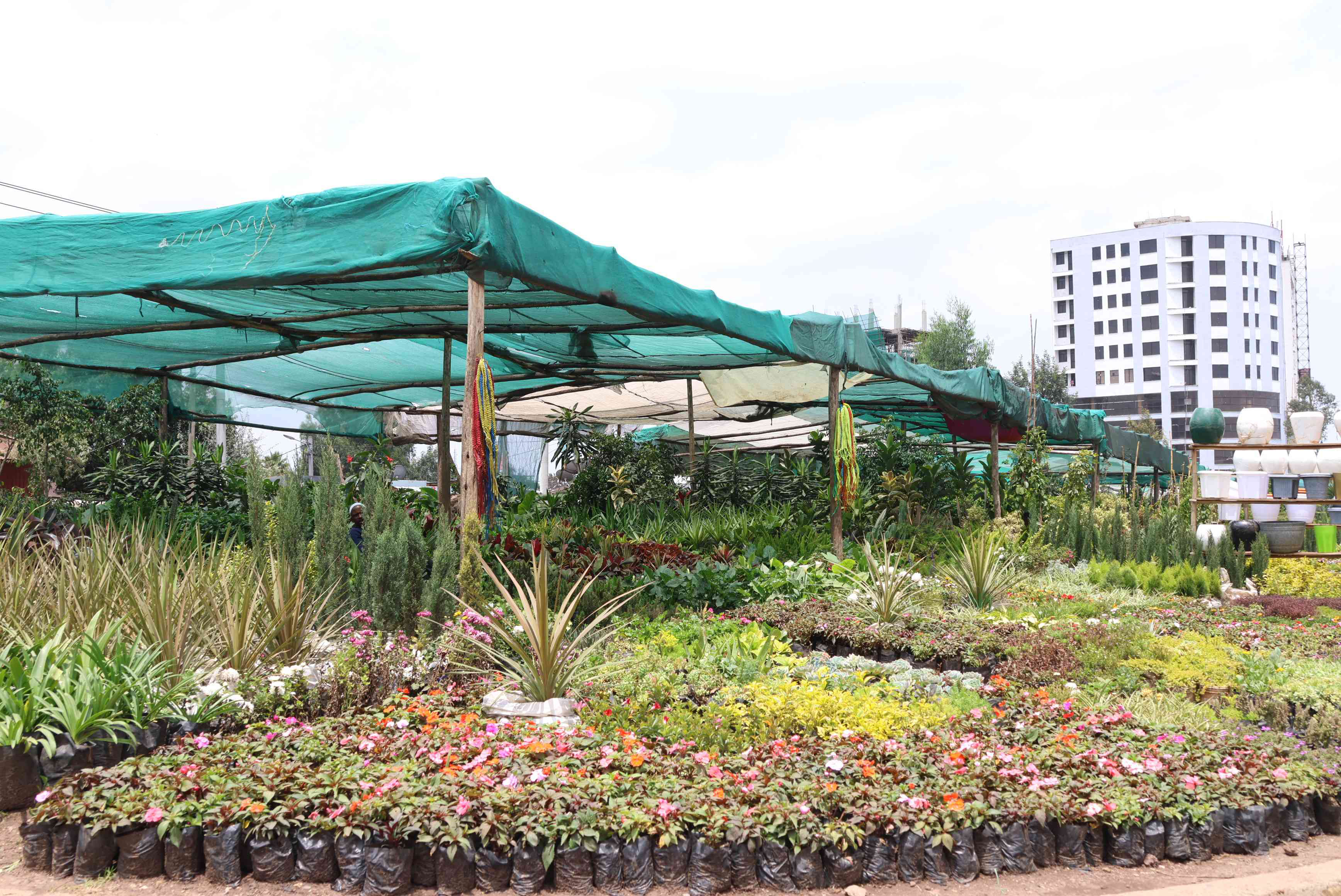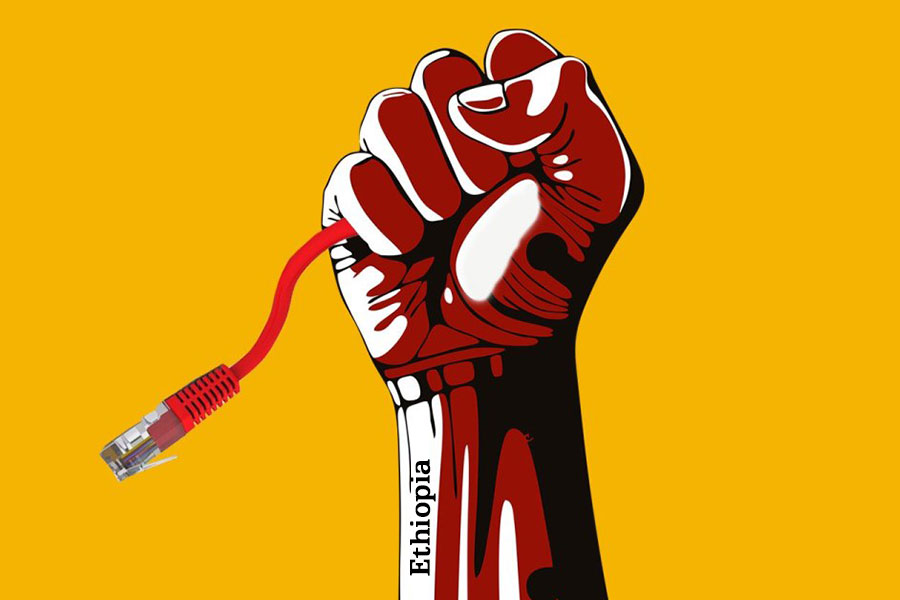
Fortune News | Jul 27,2025
May 3 , 2025
By Otaviano Canuto , Sabrine Emran
As the global shift to clean energy intensifies, critical minerals have emerged as a focal point for economic and technological advancements. The US should adopt a comprehensive approach, championing policies that go beyond mere resource extraction. In this commentary provided by Project Syndicate (PS), Otaviano Canuto, a non-resident senior fellow at the Brookings Institution and a senior fellow at the Policy Centre for the New South and Sabrine Emran, an economist at the Policy Centre for the New South, argue that by promoting economically feasible, environmentally sustainable, and ethically grounded policy, the US can set a precedent for ethical engagement and infrastructure development, particularly in mineral-rich regions like Sub-Saharan Africa.
The clean energy transition has fueled the global race for critical minerals, transforming elements like lithium, cobalt, and rare earths into strategic assets. At the centre of this emerging resource war is the escalating rivalry between China and the United States (US), both of which are keenly aware that controlling mineral supply chains is essential to technological dominance.
Critical minerals, especially lithium, nickel, cobalt, manganese, and graphite, are essential to sectors such as semiconductors, electric-vehicle batteries, renewable energy, and defence. Rare earths, for example, are vital for the permanent magnets used in wind turbines and electric vehicle (EV) motors, while the power grids that sustain modern economies rely on huge quantities of aluminium and copper.
The geopolitical importance of critical minerals has surged in recent years, driven not only by their role in the green transition but also by the increasing fragility of concentrated supply chains. China currently dominates global mineral processing, refining more than 60pc of the world's lithium, 85pc of its rare-earth elements, and 95pc of its manganese. This dominance has created new strategic vulnerabilities. A prime example is China's recent export restrictions on gallium and germanium, which show how critical inputs can be weaponised by great powers to gain a technological edge.
Ultimately, the green transition's trajectory will depend not only on where mineral deposits are located but also on how governments adapt. As countries shift away from fossil fuels, they risk replacing one form of resource insecurity with another unless they confront the complex dynamics of mineral supply and demand. Yet, much of the current debate focuses on expanding supply, overlooking potential efficiency gains, as well as advances in recycling and material substitution.
Importantly, China's resource dominance is not the result of vast mineral reserves but of strategic foresight. Although it controls only a fraction of the world's minerals, China has spent decades bolstering its processing capabilities through targeted industrial policies, enabling it to control key stages of the global manufacturing pipeline. As a result, technology has emerged as the central axis of geopolitical realignment.
While the US maintains a competitive edge in advanced semiconductor design and manufacturing equipment, China dominates clean-energy supply chains, from solar panels to batteries. But the US remains fully import-dependent for 15 critical minerals, including gallium and rare earths, and more than 50pc dependent for another 34.
Given that China is the primary supplier of nearly half of these minerals, it is clear that America's resource dependence poses a strategic threat to key sectors, including semiconductor production, defence, and clean energy. Recognising these growing vulnerabilities, former US President Joe Biden signed the 2022 CHIPS and Science Act to boost semiconductor manufacturing. President Donald Trump's Administration is currently pursuing an even more domestically oriented approach, accelerating the extraction of critical minerals while streamlining the permitting process for mining projects on federal land.
But mineral security cannot be achieved through domestic production alone, which is why the Biden Administration joined allies like Australia, Canada, and the European Union (EU) to establish the Minerals Security Partnership, an initiative aimed at "friendshoring" mineral production. Trump, by contrast, has adopted a more assertive approach, threatening to acquire Greenland "one way or another" and attempting to pressure Ukraine into a deal for critical minerals.
The scramble for critical minerals could have profound geopolitical implications, as resource-rich developing countries find themselves courted by both the US and China. At the same time, global industries face the prospect of fragmented supply chains divided along geopolitical lines.
Africa, home to roughly 30pc of known mineral reserves, including 85pc of the world's manganese and 80pc of its platinum and chromium, has emerged as a focal point of resource competition. This is especially true for countries like the Democratic Republic of the Congo (DRC), which holds an estimated 70pc of global cobalt reserves, and platinum-rich South Africa.
Yet, the disconnect between Africa's vast resource wealth and its limited economic development remains striking. Many African economies, like the DRC, rely heavily on raw material exports, having failed to invest meaningfully in value-added processing. Consequently, Sub-Saharan economies capture, on average, only 40pc of the potential revenue from their natural resources, a gap that reflects a deeper systemic failure to unlock the full economic potential of these assets.
Bauxite is a case in point illustrating the vast economic opportunities lost due to the continued export of unprocessed commodities. While raw bauxite ore sells for roughly 92 dollars a ton, its refined form – aluminium – fetches around 2,438 dollars a ton.
Despite its dominant share of global cobalt reserves, the DRC remains heavily dependent on raw material exports. This overreliance, combined with a lack of vertical integration and economic diversification, leaves the country vulnerable to sharp downturns if global cobalt prices fall for an extended period.
Delivering mutual benefits for mineral-rich African countries and the global industries that depend on their resources requires moving away from the exploitative models that have long shaped the global economy, and the US is uniquely positioned to offer such an alternative. To do so, it should champion an "E3" framework: economically feasible, environmentally sustainable, and ethically grounded.
In addition to technological innovation, America's critical-mineral policy should be guided by ethical engagement and infrastructure development. The Lobito Corridor, a US-backed project that aims to renovate the railway connecting Angola to land-locked cobalt and copper mines in the DRC and Zambia, demonstrates how strategic mineral development can generate value for local economies by supporting in-country processing rather than relying solely on raw exports.
Encouragingly, the US has signalled its willingness to engage with mineral-rich Sub-Saharan countries. But, the limited presence of US private-sector mining operations in the region, together with the rapidly shifting geopolitical landscape, underscores the need for an innovative, strategic approach focused on long-term value creation and mutually beneficial partnerships.
PUBLISHED ON
May 03,2025 [ VOL
26 , NO
1305]

View From Arada | Jun 22,2019

Radar | Jul 13,2025

Radar | Mar 26,2022

Advertorials | Aug 05,2025

Agenda | Apr 15,2023

Photo Gallery | 175802 Views | May 06,2019

Photo Gallery | 166020 Views | Apr 26,2019

Photo Gallery | 156423 Views | Oct 06,2021

My Opinion | 136844 Views | Aug 14,2021

Dec 22 , 2024 . By TIZITA SHEWAFERAW
Charged with transforming colossal state-owned enterprises into modern and competitiv...

Aug 18 , 2024 . By AKSAH ITALO
Although predictable Yonas Zerihun's job in the ride-hailing service is not immune to...

Jul 28 , 2024 . By TIZITA SHEWAFERAW
Unhabitual, perhaps too many, Samuel Gebreyohannes, 38, used to occasionally enjoy a couple of beers at breakfast. However, he recently swit...

Jul 13 , 2024 . By AKSAH ITALO
Investors who rely on tractors, trucks, and field vehicles for commuting, transporting commodities, and f...

Oct 18 , 2025
The political establishment, notably the ruling party and its top brass, has become p...

Oct 11 , 2025
Ladislas Farago, a roving Associated Press (AP) correspondent, arrived in Ethiopia in...

Oct 4 , 2025
Eyob Tekalegn (PhD) had been in the Governor's chair for only weeks when, on Septembe...

Sep 27 , 2025
Four years into an experiment with “shock therapy” in education, the national moo...

Oct 18 , 2025 . By NAHOM AYELE
In a sweeping reform that upends nearly a decade of uniform health insurance contribu...

A bill that could transform the nutritional state sits in a limbo, even as the countr...

Oct 18 , 2025 . By SURAFEL MULUGETA
A long-planned directive to curb carbon emissions from fossil-fuel-powered vehicles h...

Oct 18 , 2025 . By BEZAWIT HULUAGER
Transaction advisors working with companies that hold over a quarter of a billion Bir...